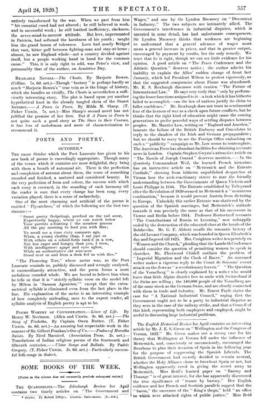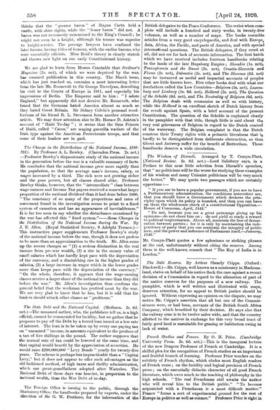The English Historical Reciew for April contains an interesting article
by Mr. J. E. S. Green on " Wellington and the Congress of Verona, 1822." Mr. Green makes out a strong case for his theory that Wellington at Verona fell under the influence of Metternich, and, consciously or unconsciously, encouraged the Bourbons to plan their invasion of Spain in the following year for the purpose of suppressing the Spanish Liberals. The British Government had secretly decided to remain neutral, whether the Holy Alliance chose to browbeat Spain or not, but Wellington apparently erred in giving the secret away to Metternich. Miss Reid's learned paper on " Barony and Manage " is of great interest, for she has apparently discovered the true significance of " tenure by barony." Her English evidence and her French and Scottish parallels suggest that the " baron," the successor of the " King's thegn," held " an office to which were attached rights of public justice." Miss Reid thinks that the " greater baron " of Magna Carta held a castle, with shire rights, while the " lesser baron " did not. A baron was not necessarily summoned to the King's Council ; he might not even be a knight, although his tenure was superior to knight-service. The peerage lawyers have confused the later barons, having titles of honour, with the earlier barons, who were essentially officials. Miss Reid's theory is clearly stated, and throws new light on our early Constitutional history.



































 Previous page
Previous page